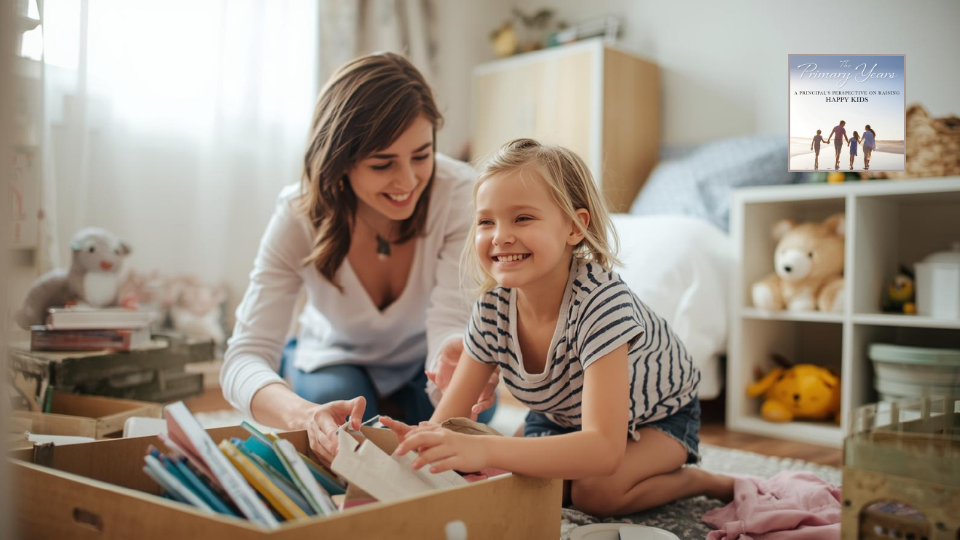
A few thoughts to keep in mind late January
The new school term is here. Are you and your child ready to embrace the change? Moving from holiday mode to school routines is more than just packing bags, it's about nurturing growth in every way: social, emotional, intellectual, and physical.

Why Your Child’s Mental Health Matters
What's the one thing that influences your child's ability to learn, build friendships, and navigate challenges? It's not the latest educational toy or a packed extracurricular calendar. It's their mental health. Discover why creating a foundation of emotional safety is the greatest gift you can give your child.

FEEL SAFE AND BE SAFE IS GOOD MENTAL HEALTH FOR YOUR CHILD
Emotional safety is the foundation of good mental health. When children feel safe with you, their confidence and resilience grow. In this blog, Gail Smith shares simple, practical habits you can build into everyday life to help your child feel secure, supported, and strong.

Raise a Hopeful Child: The Power of a Proactive Parent
Tired of always reacting to meltdowns and lost lunchboxes? What if you could shape how your child sees the world instead? In this blog, we explore how small, proactive steps can build resilience and boost your child’s mental health.

Simple ways to help your child with their anxiety issues
Today’s children are growing up in a world filled with pressure from school demands to social media and even the stress they sense from adults. It’s no surprise that anxiety is becoming more common in younger children. The good news? We can teach them how to cope and thrive. Building resilience doesn't mean they'll never face challenges. It means they'll have the tools to bounce back, try again, and keep moving forward. And that’s one of the greatest gifts we can give them.

As a parent remember to listen well
Children learn by example, and when parents practice active listening, they teach valuable communication skills. When a child feels heard, they understand that their thoughts and feelings matter, building their confidence and sense of self-worth. Gail Smith shares five compelling reasons why truly listening to your child is essential for their emotional and social development.

How to Support Your Child’s Mental Health Through School Without Over Complicating It
Supporting your child’s well-being doesn’t have to mean long lectures or expensive therapies. Gail Smith shares simple yet effective ways that you can apply to make a real difference in supporting your child's mental health.

Have a positive outlook with your child. It's great for strengthening mental health.
A positive mindset can help your child build essential life skills and create a happier, more harmonious family environment. Gail Smith shows you how you can nurture optimism and resilience at home.

Talk to your child regularly. It’s important for their mental health
Keep talking with your child. Show them that conversations help solve problems and make them feel better. In this blog, Gail Smith shares why regular conversations are so important for your child’s well-being.

A child's mind is a garden—nurture it with love, or weeds of doubt will grow.
As caring parents, we play a vital role in shaping our children’s mental well-being. In this blog, we are exploring the thoughts that reflect the difference we can make to building good mental health in our children.

Let’s look at conversations to have with your child
By having regular, open conversations, parents can nurture a positive outlook in their child’s life. Here are five meaningful topics parents can frequently discuss to support mental health, instill confidence, and remind children that they are always loved. Read on to learn how these conversations can help your child grow with confidence and emotional security.

Be Present for your child. It supports their mental Health
Being present for your child is one of the most impactful things you can do as a parent. It’s not about grand gestures or extravagant outings; it’s the simple, healthy, and regular engagement that truly nourishes your child's spirit and sense of well-being. Gail Smith emphasizes that these consistent interactions are crucial for your child's mental health. Read on to find out why.

Why it is important to monitor the mental health of your child
In today's complex world, children face an overwhelming influx of information from social media and other sources. It's crucial to ensure their happiness and sense of security during the early years to build mental resilience. By being present, listening well, and working together to solve problems, parents can foster resilience and reassurance in their children. Gail Smith emphasizes the importance of monitoring and supporting your child's mental health.